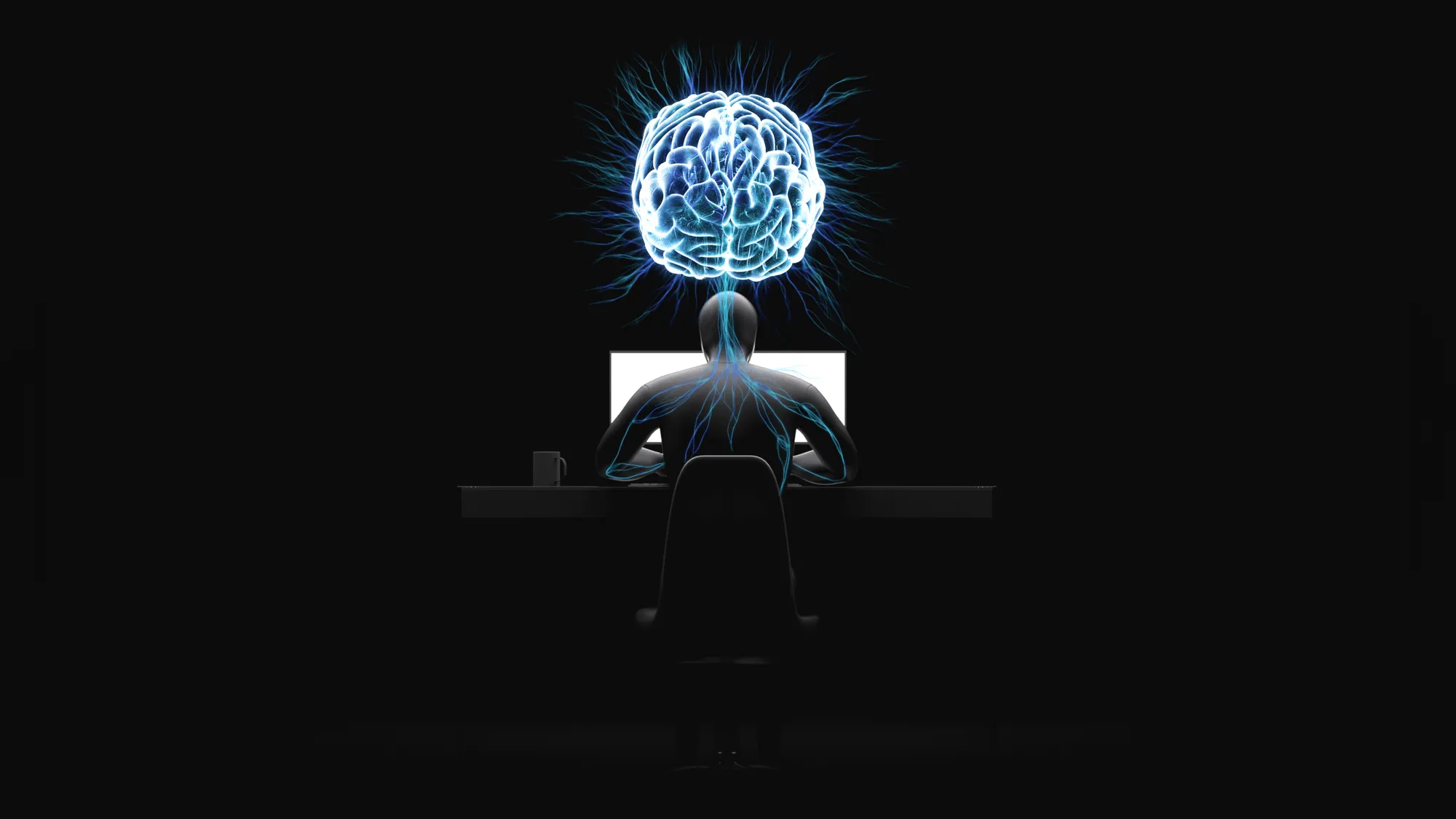
Your mindset helps or hinders performance. Learn how to train your mind to focus. Train your subconscious and monkey mind through high performance habits.
Your mindset has a big impact on success.
When we admire people who are crushing it in business or sports, we tend to focus on the externals—what we watch and observe.
Think of a mountain biker riding a 3-inch-wide log down a twenty-five-foot drop and making it look easy.
We know that hard skills require hours of training.
But impossible feats don’t happen without the right mindset training as well.
Attempting something highly technical and risky on skis without the right mindset is a one-way ticket to the hospital.
In business, giant leaps of innovation don’t happen without a trained mind either.
Your mindset is a belief that affects how you handle situations.
Research shows that mindset is key to our success or failure. In her book, “Mindset: The New Psychology of Success” (Ballantine, 2007), author and psychologist Carol Dweck says, “We like to think of our champions and idols as superheroes who were born different from us. We don’t like to think of them as relatively ordinary people who made themselves extraordinary.”
One thing that helps is having confidence. “When you have confidence in your preparation and abilities and trust in yourself and your teammates (on the field or in the office), then you’re freed up to be able to focus on what’s in front of you in the moment,” says high-performance psychologist Dr. Michael Gervais, one of the Flow Research Collective’s advisors.
Mindset training uses tools to transform your mental state.
An untrained mindset will often lead a person to feel:
- Stressed
- Overwhelmed
- Anxious
- Always on
Where a trained mindset will make you feel:
- Calm
- Composed
- Steady
- Effective
Your mindset can be a massive competitive advantage when you get it right.
Let’s look at some of the specific areas required for training a mindset that works for you—not against you.
Mindset Training Requires Focus
In one of our podcast episodes, Dr. Adam Gazzaley, a world-renowned neuroscientist and advisor of the Flow Research Collective has become a leading expert on the distracted mind.
In his book, co-written with Larry D. Rosen, “The Distracted Mind: Ancient Brains in a High-Tech World” (the MIT Press, 2016) Dr. Gazzaley talks about the strain that technology has put on our minds.
And we are using technology more than ever before.
Dr. Gazzaley is not anti-tech. He feels that because of the challenges technology presents to our minds there is also opportunity. How can we learn to use technology better to help us not just survive, but thrive?
One of the issues with learning to focus is that for years we have been conditioned by society to always be multitasking. All of our computer tabs, devices and phone alerts are constantly vying for our attention.
The lie is that switching rapidly between all of this stimuli is the way to be massively productive. Gazzaley’s research is finding that our brains don’t really handle that type of information overload very well.
With or without technology.
If you want to develop what we call a “dangerous” mindset, you need to see attention as a fragile prized possession.
This starts with developing a commitment to unitasking. If multitasking is switching back and forth between two or more things, unitasking is bringing focused attention down to one task.
Attention is a behavioral and cognitive process of selectively concentrating on a single aspect of information while ignoring all other perceivable information.
You can’t have true attention and focus unless you are unitasking.
Attention leads to focus which leads to flow—the mindset required for optimal performance.
How can anyone manage to have flow when the average person is being interrupted every 5 minutes for up to twelve hours a day?
You have to remember that ignoring is an active process. You have to work to suppress the information that you don’t want to give attention to.
A few habits you should adopt to get your mind in the habit of focusing are:
- Eating without scrolling on your phone, just focusing on eating.
- Having a focused conversation with one person at a time and giving them your full attention.
- Stop combining activities that should have your undivided attention (example: don’t respond to emails while getting dressed for work.)
Here are a few effective strategies for increasing focus.
- Decrease the amount of distractions around you. This allows you to apply more resources to what’s relevant. You can reduce browser windows, items on your desk and physical things in the room where you are working. Minimize clutter—both external and internal.
- Become aware of internal distractions, such as worry and anxiety. These internal interferences take you away from the task at hand.
- Alleviate fatigue—both physical and mental. Your brain requires rest periods in order to be able to focus at a high level. Not all rest is equally effective. If you really want to become burnout proof, learn the tools of active recovery.
Scrolling social media sites while trying to work, or staying up late watching screens train our minds to be undisciplined and unproductive. To develop high performance habits, you have to discipline yourself to not do things that are easy to do, but aren’t useful for accomplishing goals.
You can listen to the full podcast episode “Ancient Brains In A High-Tech World” Here.
Check out this related article on Developing a High-Performance Mindset.
Want to learn proven strategies for optimizing your technology for flow? It’s covered in our flagship training, Zero to Dangerous. Train With US.









